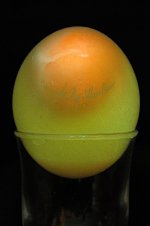Frankly, equipment matters less than knowledge of photography, People can take the fantastic pictures with a used D40 and the 120 dollar nikkor 50 1.8.
Its the knowledge of compostition, light control, and well an thinking of the framing.
Then
The equipment balances your knowledge, and as your skills and knowledge of photography grows, well so does you love of the equipment that helps make it happen.
so, like the knowledge of the process of taking photos grow, so does your knowledge of
the equipment grow.
To choose lens over camera is kinda silly, they are a the balance of the equation. With that said, I will say that I prefer a mininum level of SLR, but frankly, every Nikon SLR made today far surpasses that mininum level, they are ALL fantastic.
My Bias,,, is a camera that reads old glass (can meter), can drive D series lens for focus, can bracket at least 3 shots, and has both command dials front and back.
choices D100, D200, D300, D7000, D700, D600, D800, D1,2,3,4
less choice D40,D50,D70,D80,D90 -> Can't meter old glass, but can use older AFS lens
but this is my bias for old glass, and manual controls.
if you want to shoot more aperature priority mode, well, and use the +- feature
then 3100,3200,5100,5200,, very fine cameras
Then for lens, I perfer to match the lens to my use, do I want a travel lens with wide zoom,
do I want small light weight wide angle, am I looking for fast low light, a lens for beautiful bokah, maybe I am looking for reach,, then again, maybe close up micro, or correcting the perspective control in the city, or playing with a fisheye with wicked distortion, I am less hung up with the rating, and more on does the lens do what I asking it to do, or better yet, do I understand the shot I am wanting, and matching the correct lens. I like manual lens, I like autofocus lens, sometimes in the mood for simple primes, other times appreciate the flexibility of a zoom.
Ahh, the fun of collecting lens,
so start your journey, and enjoy.
 Which camera and which lens would you start with?
Which camera and which lens would you start with?
